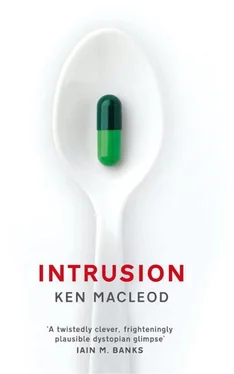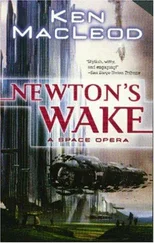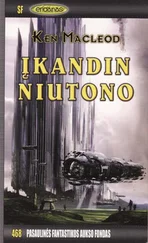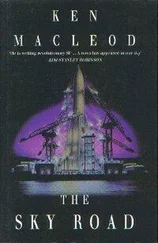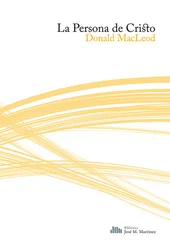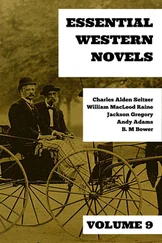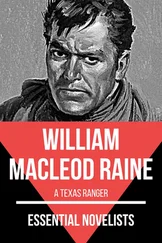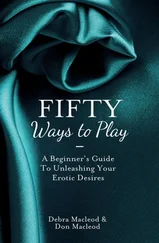‘We?’
‘The Health Service. We have to do our best to persuade.’
‘Fair enough,’ said Hope. ‘But I can’t actually be compelled. Not yet.’
‘Uh, that’s not strictly true, Hope. The local health centres have all changed their policy in line with the ruling. There’s a provision already for court orders. We hope it won’t come to that, obviously.’
Hope felt a cold jolt.
‘But there must be thousands of mothers in my position! You can’t take all of them to court!’
Fiona rubbed the back of her neck, between the collar of her tunic and the curve of her pinned-up hair.
‘Well, no,’ she said. ‘But I’ll be honest with you, the idea is that a few cases will be enough to make the rest fall into line. You just have to hope your number doesn’t come up.’
‘This is so fucking unethical,’ said Hope.
‘No, it’s not,’ said Fiona. ‘Not on any ethics I was taught, at work or anywhere else.’
‘What about my choice? Doesn’t that count for anything?’
‘Yes, it does. You do have a choice. That’s what I’m trying to tell you.’
‘It’s no choice if it’s hedged about with conditions I can’t meet.’
‘But the conscience exemption—’
‘That goes against my conscience!’
‘Look,’ Fiona pleaded, ‘the centre will give you every opportunity, they’ll bend over backwards to accommodate everyone who has a genuine conscience-based objection, they’ll hand out exemptions like Tesco vouchers. But what they can’t accept is people just saying no for no reason.’
‘I don’t get it,’ said Hope. ‘If faith kids are allowed to be just the same as nature kids, the problem can’t be that bad in the first place. I mean, you’re not allowed to beat your child just because the Bible says you should. You’re not allowed to rely on praying over a sick child, no matter what your beliefs are. If the child’s sick enough, you’ll still get hauled up for neglect if you don’t call a doctor. So the fact that the nutters can get away with this one means the fix isn’t all that important – it’s regarded as a good thing to have, I’m sure, but not having it can’t really be thought of as that bad. So why can’t I just say I don’t want it?’
‘It’s the principle,’ Fiona said. ‘When we had conscription, we allowed conscientious objection. But you had to convince a board that your objection was genuine conscience and not just cowardice, because otherwise every coward or anyone who just didn’t want to be bothered could claim it was conscience. You can’t have people dodging an obligation just because they don’t feel like it.’
‘That’s not what I’m saying!’
‘I’m sorry, Hope, but from where I’m sitting, it is.’ Fiona shrugged. ‘I sympathise, obviously, but all I can say is, I hope you’re not one of those picked to be made an example of.’
The remark stung. Hope stared across the table at Fiona: friendly, businesslike, almost motherly. In the grey light from the window and the white light from the LED fixture, she sat in a halo in which she looked serene, concerned, informed, everything a visiting nurse should be. She’d sat across this table so many times, held Hope’s hand, helped to bath Nick when he could be cradled in the crook of one arm. Hope knew she had her best interests at heart.
‘Oh, thanks,’ said Hope. She looked away. ‘Well, the site can run itself but I don’t earn any money that way…’
‘Of course, of course,’ said Fiona. ‘Thanks for the tea.’
‘That’s fine.’
Fiona gave a tight smile. She reached into her tunic pocket and took out a small yellow-and-white carton, about the size of an aspirin packet. Printed at the top of one side was SynBio in friendly, flowery pink font. She placed it on the table, carefully, but her hand shook a little and Hope heard a hollow, plasticky rattle.
‘Just in case you change your mind,’ Fiona said. ‘One tablet, down with water. The sooner the better, obviously, but it can sort out quite a lot even after six months.’
Hope shifted her gaze from the packet to Fiona’s face. She flexed one shoulder.
‘Sorry,’ she said.
Fiona made for the hall.
‘You will think about it, won’t you?’ she said as she shrugged into her fleece.
‘I’ll think about it,’ said Hope, opening the door.
Fiona gave her a tight smile and went out, into the now thicker snow. Hope got the door closed before she started crying. Fiona wasn’t a villain. Fiona was just a person who represented an impersonal system closing in and grinding them down. That was how Hope saw her.
That morning, Hugh arrived at his work shortly after 9.30. He wasn’t late: as far as he was concerned, the billed-for day began when he set off on his bicycle, and he’d set off at 8.00 prompt. The shower had ended as he reached Acton – or rather, he was out from under its cloud, which he could see behind him whenever he glanced over his shoulder. Which was often, given that many of the vehicles on the road were almost as quiet as his bike, and a lot faster and heavier, and the cyclists more dangerous than any of them. Unlike most of the heavier vehicles, bikes were steered by humans, and almost all by cyclists. Hugh rode a bike, but he didn’t consider himself a cyclist.
As he whizzed through the traffic and raced across junctions and around roundabouts, Hugh found himself preoccupied – though not distracted, because the parts of his brain that dealt with cycling in traffic had long since laid down reflexes that operated below the level of his conscious thought – by the vision, indeed the full-sensory hallucination he’d had the previous evening. Sight, sound and smell; and to all appearances an awareness of Hugh’s presence, though perhaps not that of anyone or anything else in the hall or in the house.
Hugh, for reasons that will later become painfully clear, was a confirmed scoffer about anything that smacked of the supernatural or even of the paranormal. He was less troubled by his visions than might be supposed. In his early teens he had read with delight the poem of Lucretius, in a tatty old paperback published by Sphere Books in 1969 with a Max Ernst picture on the cover. He’d found it in the attic of his parents’ house, which had once been a Free Church manse, amid a stash of dusty old rationalist works, presumably from the minister’s library. (Hugh had only made sense of this when he’d noticed that most of the books were critiques of the historical record of the Roman Catholic Church.) On the inside cover, the pencilled words were just legible:
Here rolls
The large verse of Lucretius, who raised
His index-finger and did strike the face
Of fleeting Time, leaving a scar of thought
The rain of ages shall not wash away.
No source for the quote was given. For years, Hugh had attributed the lines to the long-departed minister himself, inspired no doubt by the prevailing weather of his parish. It was an obscure thrill imparted by the lines that impelled him to turn over the pages of the book, and then to read it. He found a great deal in those pages that left imprints on his brain, but none more than the poet’s explanation of how the existence of the gods was known: because they were seen and heard, in visions and in dreams. From their distant milieu between the worlds – in outer space, as Hugh read it – faint images were transmitted, which sometimes impinged on human senses, producing impressions of the gods: correct impressions, as far as they went. The existence of the gods was an entirely empirical matter.
From this Hugh had concluded, to his great relief, that when he saw and heard people that other people couldn’t, he wasn’t crazy. He was seeing things all right, but seeing things that really were out there , in a quite literal sense. At thirteen he’d heard and read enough about dark matter and exotic particles and quantum uncertainty and the possible infinity of possible universes to be convinced that the nature of things was as yet unfathomed. Perhaps he was seeing the same gods that the Greek materialists had perforce admitted that they – like everyone else – saw. A few years later, further reading and online searching led him to speculate that the people he saw, in their barbaric attire, were perhaps real people from the past – not that he was seeing ghosts, but seeing into the past, reflected in some mirror of the face of fleeting Time – and that they, in seeing him (as he did not doubt they did), saw into the future. He even wondered, idly, what they made of him – a mage perhaps, able to conjure strange powers.
Читать дальше
